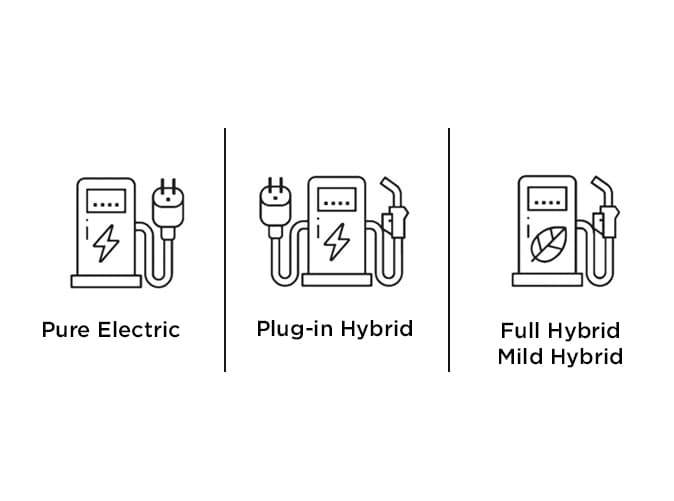Common Questions
What rebates and incentives are available?
A federal tax rebate of up to $7,500 is available on some EV models. Depending on where you live, state and local rebates and incentives may also be available. Check with your sales associate to find out if the model is eligible for rebates and incentives.
What other perks are available?
Other advantages of owning an EV include:
- Eligible EVs may also qualify for HOV lane access, which are normally restricted to vehicles with multiple passengers.
- Many electric companies offer lower rates based on the time of use. With EVs, you can save money by charging during off-peak times.
- If you're able to charge from work or home, there's usually no need to stop to refuel like you would in a gas-powered vehicle.
- EVs produce zero tail-pipe emissions resulting in cleaner air and better health.
How much will I save on gas?
This will vary depending on the local price of electricity and gas and where you are charging (at home or public charger), but most EV owners can expect to save on fuel cost. A recent Consumer Reports study found the "typical EV owner who does most of their fueling at home can expect to save an average of $800 to $1,000 a year on fueling costs over an equivalent gasoline-powered car."
Source: Benjamin Preston. October 08, 2020. EVs Offer Big Savings Over Traditional Gas-Powered Cars.
How much will I save on maintenance?
A recent Consumer Reports study found "maintenance and repair costs for EVs are significantly lower over the life of the vehicle - about half - than for gasoline-powered vehicles, which require regular fluid changes and are more mechanically complex. The average dollar savings over the lifetime of the vehicle is about $4,600."
Source: Benjamin Preston. October 08, 2020. EVs Offer Big Savings Over Traditional Gas-Powered Cars.
How much range do I need?
Gas powered vehicles offer a range of 300-400mi. Battery electric vehicles offer a median range of 250mi. For EV owners who charge at home, this is more than enough for daily use. For longer drives beyond the range of your vehicle, check a public charger map for charger availability along your route.
How long does it take to charge?
Level 1 chargers use a standard household outlet and charge about 2-5 miles of range per hour, making Level 1 a good choice for plug-in hybrid vehicles but not battery electric vehicles.
Level 2 chargers can be installed at your home by a professional electrician and charge about 10-20 miles of range per hour. A good choice for any EV when charging overnight or all-day is possible.
Level 3 fast chargers are the most efficient and can be found at commercial locations. Level 3 can charge about 60-80 miles of range in about 20 minutes, making it a good choice for any EV when a quick charge is needed on the go.
Can I charge at home?
Yes, Level 1 and Level 2 chargers can be used at home. In fact, the standard 120V outlet supports a Level 1 charger. Level 2 chargers require 240V and can be installed by a licensed electrician. If you do not own your home, you may need to work with your property owner to install a Level 2 charger.
How long does the battery last?
Most batteries will last between 100,000 and 200,000 miles when properly cared for. With battery technology continually advancing, that number should continue to increase.






